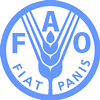 |
|||||||||
|
|||||||||||||||||||
|
|
High Food Prices Could Reverse Agricultural Growth Soaring food prices could reverse the significant growth in agricultural production recorded by some of the poorest countries in Europe and Central Asia over the past 10 years, said FAO Director-General Jacques Diouf today at the opening of the 26th FAO Regional Conference for Europe.
Moreover, government response to higher prices has not always been supportive of the farm investment needed to raise production and productivity, favouring instead measures such as export restrictions, which have resulted in cancelled export contracts and lower prices received by farmers, he noted. Positive trends “As in most parts of the world affected by food insecurity, hunger in Europe and Central Asia derives from rural poverty and from natural and man-made disasters, rather than from a total lack of food at macroeconomic level,” Dr Diouf said. “In the past ten years, some of the poorest countries have posted the largest gains in per capita national income, notably the countries of the Transcaucasus and Central Asia, while growth has been slower in the countries of Western and Eastern Europe,” he said, noting that per capita agricultural production had also grown fastest in those countries. But this positive ten-year trend might be coming to a halt without bold policy steps to contain price increases, he said, echoing the conclusions of a conference organized in March 2008 by FAO and the European Bank for Reconstruction and Development (EBRD). Untapped potential “There is strong agricultural potential in Kazakhstan, Russia and Ukraine,” the FAO Director-General said. “With a supportive policy environment and investment in infrastructure, at least 13 million hectares could be returned to production, without major cost to the environment.” He noted that crop yields in those three countries are three times lower than in Central, Eastern and Western Europe, where modern inputs are employed and contract farming is used to reduce market risks. “The Commonwealth of Independent States and the countries of Southeast Europe are far more rural and agricultural than those of Western Europe,” Dr Diouf said. ”Yet agriculture remains vulnerable and provides relatively low income because of insufficient crop yields.” He said that FAO's main concern in this region is rural poverty which, in some countries and especially in Central Asia, is accompanied by food insecurity, despite the fact that there is no lack of qualified specialists in technical fields such as veterinary medicine, fisheries, forestry and agronomy in these countries. “What is lacking for agricultural and rural growth are development policies that favour commercial agriculture and institutions of governance and support for the development of family farms and the private sector,” he said. “New EU member countries have succeeded to reduce rural poverty, ensure sustainable agricultural growth and to become high-income countries by adapting their policies and institutions,” Dr Diouf said. “Those countries have invaluable information and expertise to facilitate the process of agricultural transition.” Dr Diouf highlighted FAO’s efforts to raise awareness among policy-makers and the public about actions needed to address these issues, including FAO’s Initiative on Soaring Food Prices, and stressed that FAO was ready to provide its assistance in a number of areas to ensure food security for all. Other constraints Other constraints to agricultural production and food security in the region over the past two years have been pests, diseases and emergencies, the Director-General said. He highlighted FAO projects to supply pesticides and regional consultations to address the transboundary migration of locusts and diseases, such as avian influenza, foot-and-mouth disease and African swine fever, which have affected the countries of the Transcaucasus. In response to emergencies in the Russian Federation, Tajikistan and Moldova, FAO has helped poor rural households rebuild their livelihoods through livestock and with high-value agricultural products and has provided seed and animal feed to poor farmers affected by snowfall and drought. Participants at the two-day conference, which include representatives of 44 Member Nations from the region, will discuss these activities, as well as progress in attaining the World Food Summit and Millennium Development Goals. Other items on the agenda are FAO and adaptation to climate change in the region, and the promotion of traditional regional agricultural products and food.
|
||||||||||||||||||

|
|
||||||||||||||||||
| home | agri-services | pedigree
pen | news | dairy | beef | machinery property | organisations | site map |
|||||||||||||||||||



